Transformation of Costa Mesa Motel 6 into homes for at-risk veterans, seniors has begun
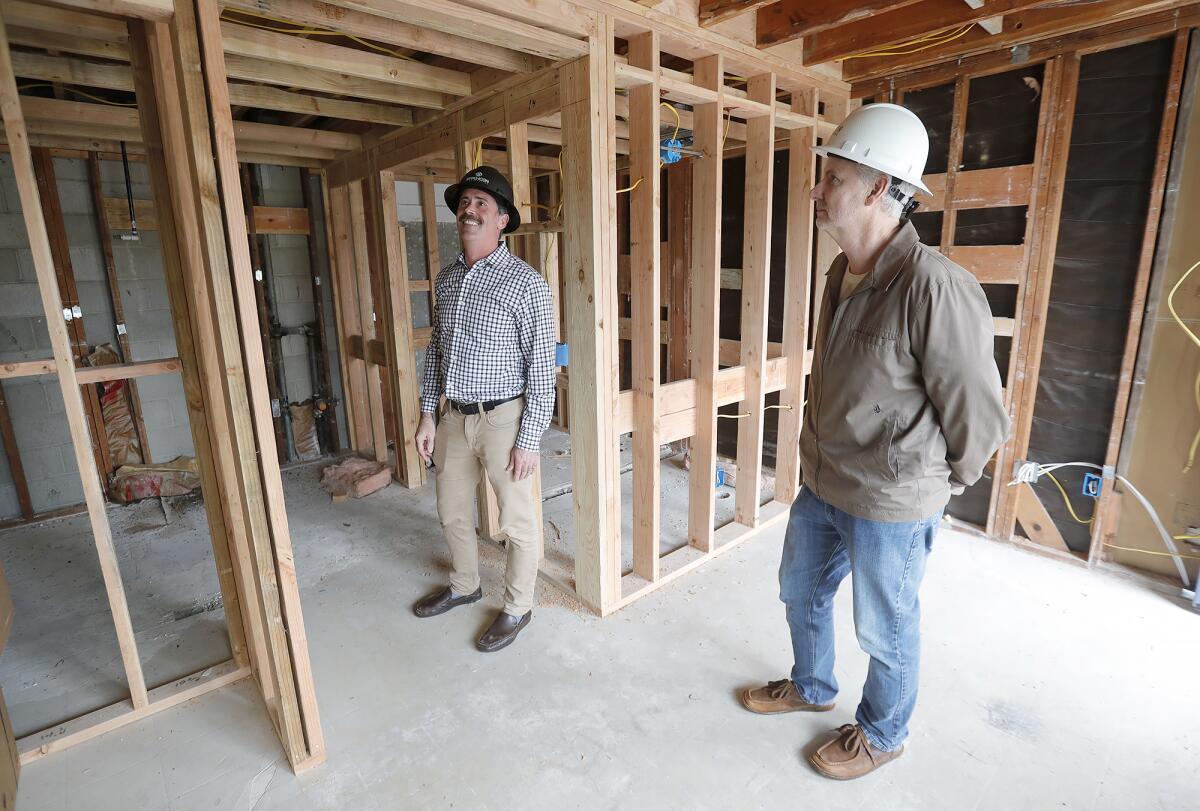
- Share via
A coordinated effort to transform an aging, underperforming Motel 6 on Costa Mesa’s Newport Boulevard into affordable housing for military veterans, seniors and others at risk of homelessness is taking shape after years of planning.
Located near the 55 Freeway, the 1.17-acre site still maintains vestiges of its former use. A front desk lobby building flanked by serene landscaping now serves as a construction office, while a small placard underneath a blacked out “Motel 6” logo advertises the availability of Wi-Fi.
But what’s happening inside the 88-unit complex — where workers were found Thursday pulling wall mounted air conditioners from underneath room windows and framing walls to accommodate small kitchenettes — is nothing short of a sea change.
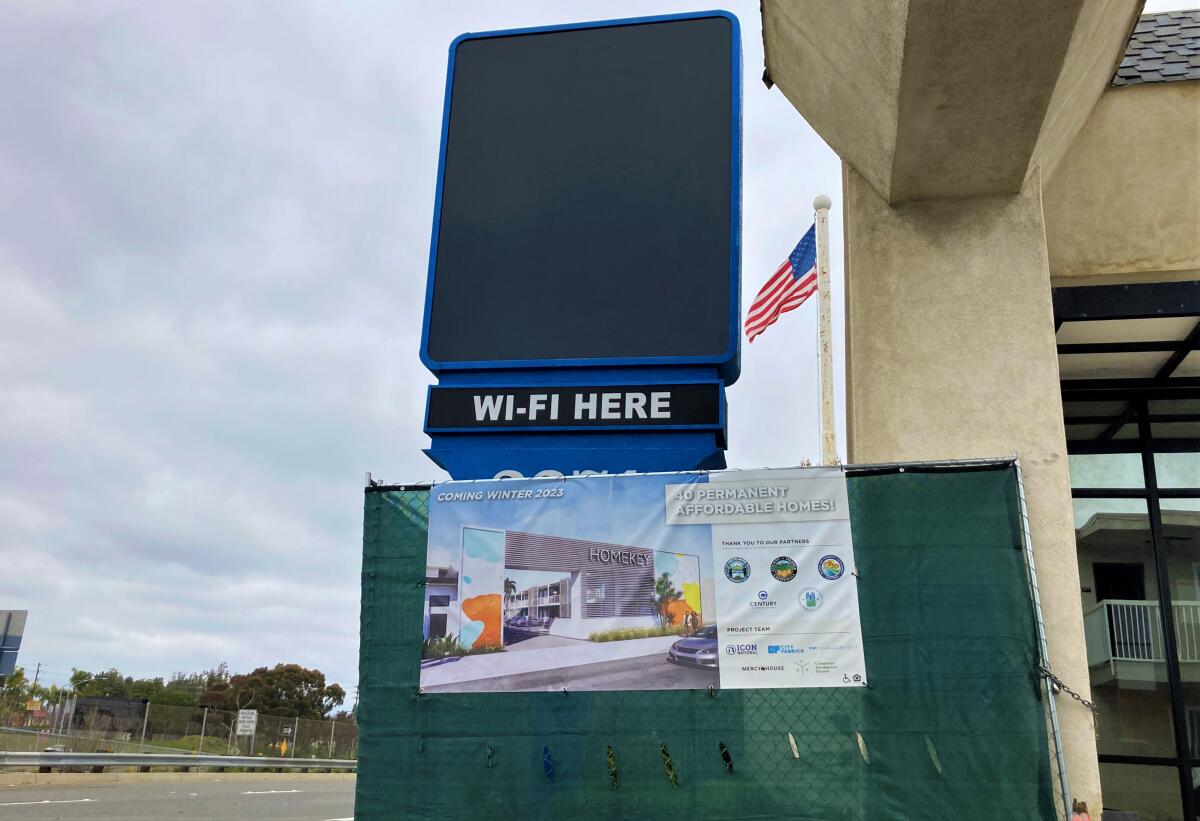
Once the conversion is complete, residents will be housed in 320-square-foot rooms that allow up to two occupants and pets. Residents will have access to on-site support services, like healthcare and case management, coordinated by Santa Ana nonprofit Mercy House.
They also might take financial literacy classes or participate in educational programs in a planned business center or enjoy other common areas, like a TV and game room. A small community garden is being planned for the space that formerly served as a motel pool.
“This is not a shelter. This is somebody’s home, an apartment complex. It’s where people live,” Mercy House Chief Executive Larry Haynes said of the living model during a tour of the site Thursday.
“If you were to move in today, according to our statistics, you’d probably have a 97% or 98% chance of still being housed here a year from now.”
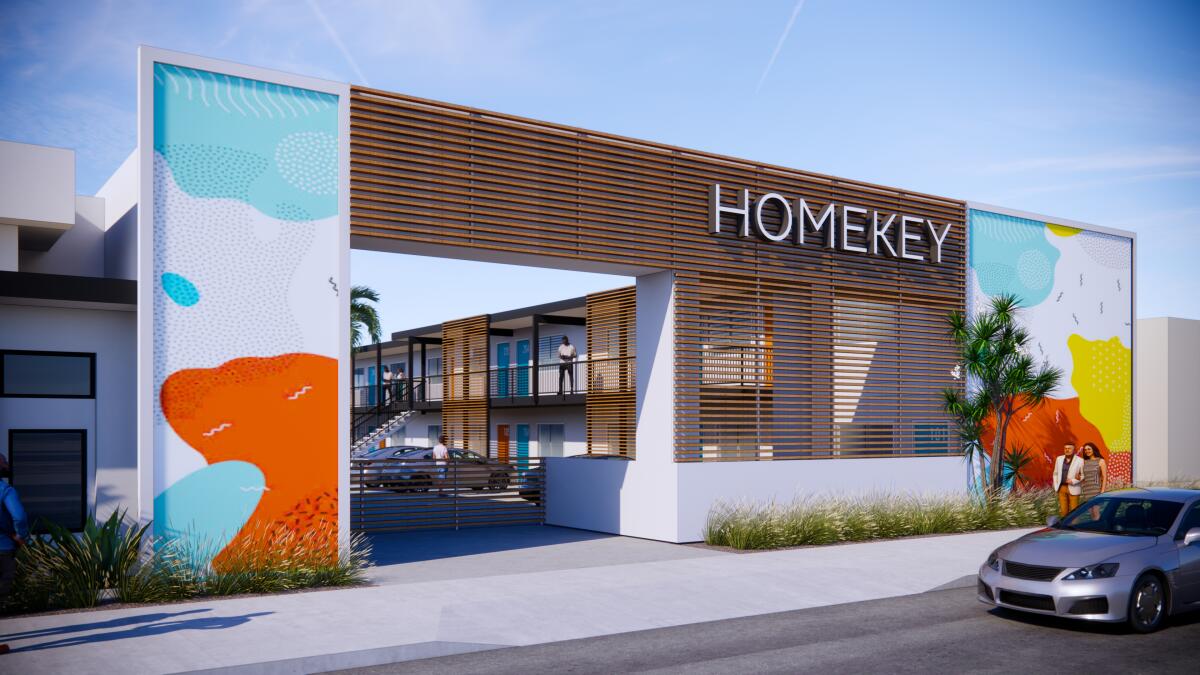
The roughly $49-million project was made possible by the state’s Project Homekey, an outcropping of an earlier initiative — Project Roomkey — which housed homeless and at-risk individuals in motel rooms shuttered during the COVID-19 pandemic.
Today, the program allows cities to leverage federal, state and county funds and work with developers and service providers to build affordable housing units and maintain program offerings on properties motel owners are willing to sell.
Operating in conjunction with Mercy House on the Motel 6 project is Newport Beach-based Community Development Partners, which specializes in affordable housing projects and was converting motels into living spaces years before Project Roomkey existed.
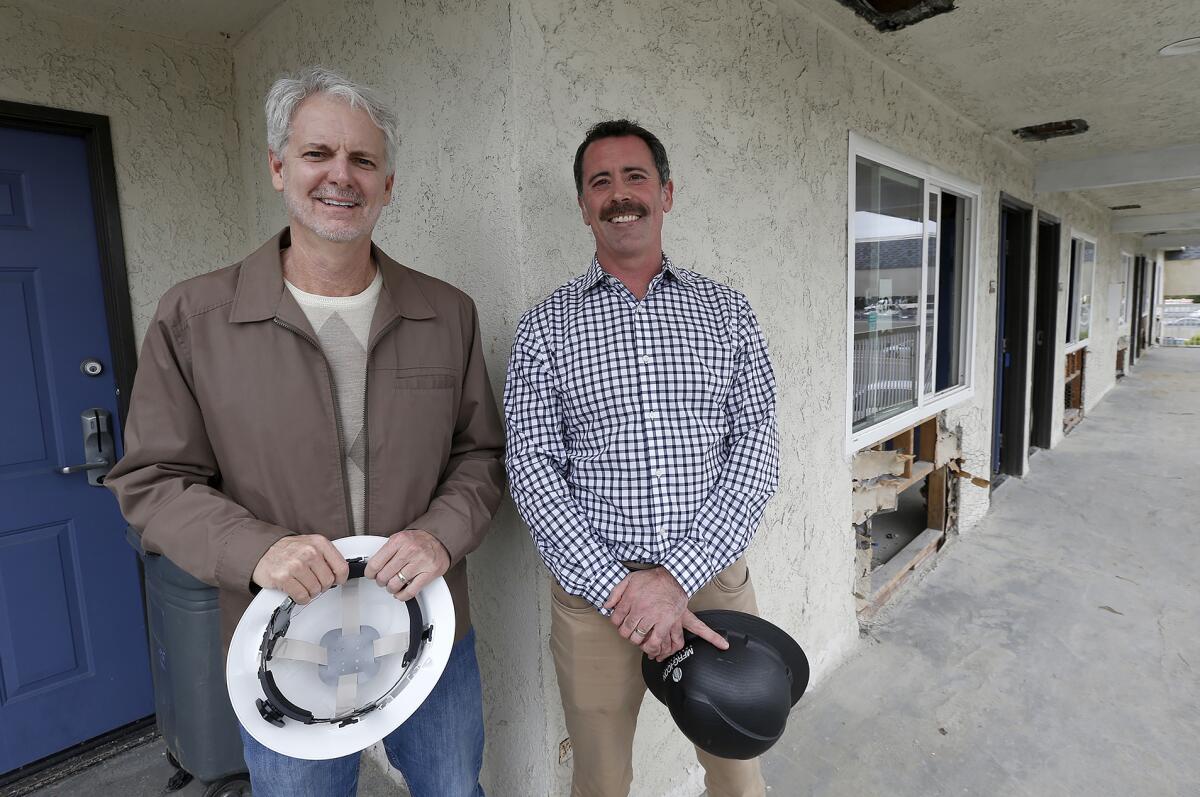
President Kyle Paine, a Costa Mesa resident who is a friend and neighbor of Haynes, said CDP and Mercy House were looking to partner on a local project that would do something to address homelessness while increasing the city’s affordable housing stock.
“That’s how we got involved in permanent supportive housing, by talking to Mercy House,” Paine recalled. “I said, let’s work together and you can do the service side, so we can move to put a dent in Orange County’s homelessness problem.”
The first 40 units of the project will be move-in ready by October, providing housing for 30 formerly homeless U.S. veterans and 10 at-risk individuals eligible for assistance under the Mental Health Services Act.
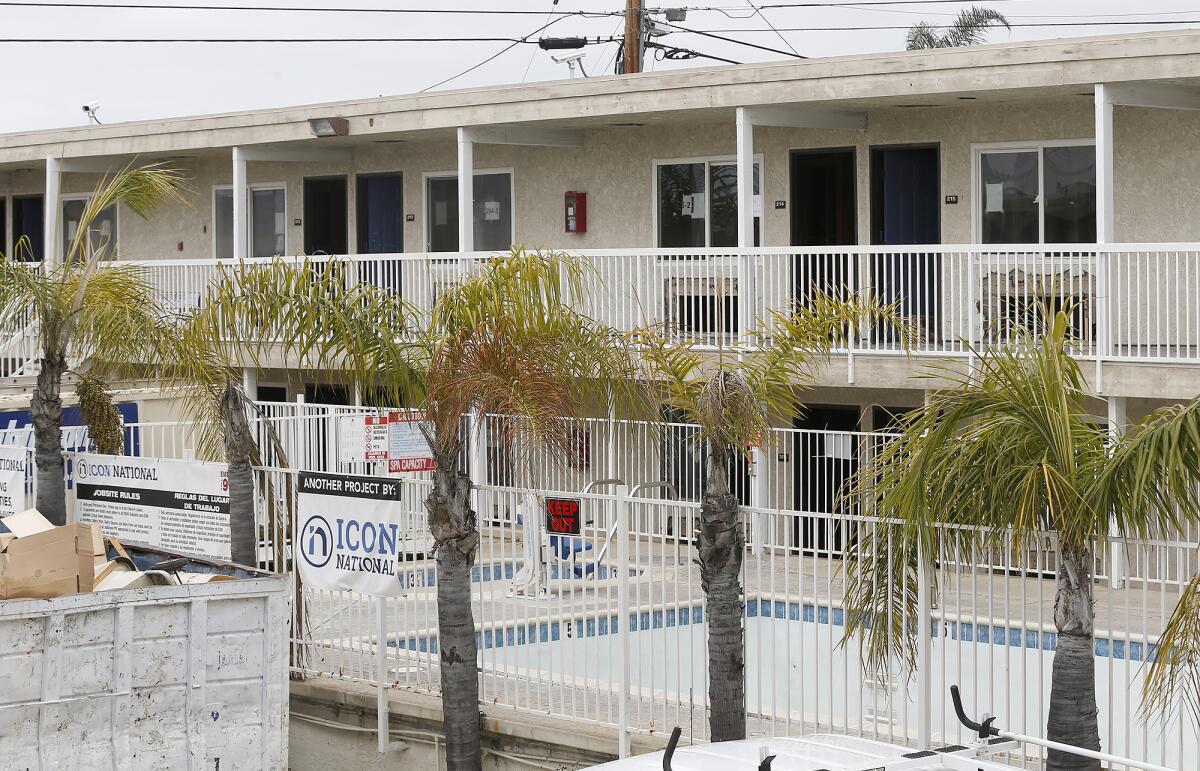
A second phase, slated to begin early next year, will open up another 47 units for low-income seniors. Unlike a shelter, which is free but only temporary, the residents here will be asked to pay roughly 30% of their income, which may be covered by vouchers provided through the U.S. Department of Housing and Urban Development (HUD) or the Veterans Administration (VA).
Haynes said the best way to end homelessness is through providing housing options that consider individuals’ varied needs. Locating such housing in underutilized hotels, which may have contributed to historic public safety issues, also benefits the city.
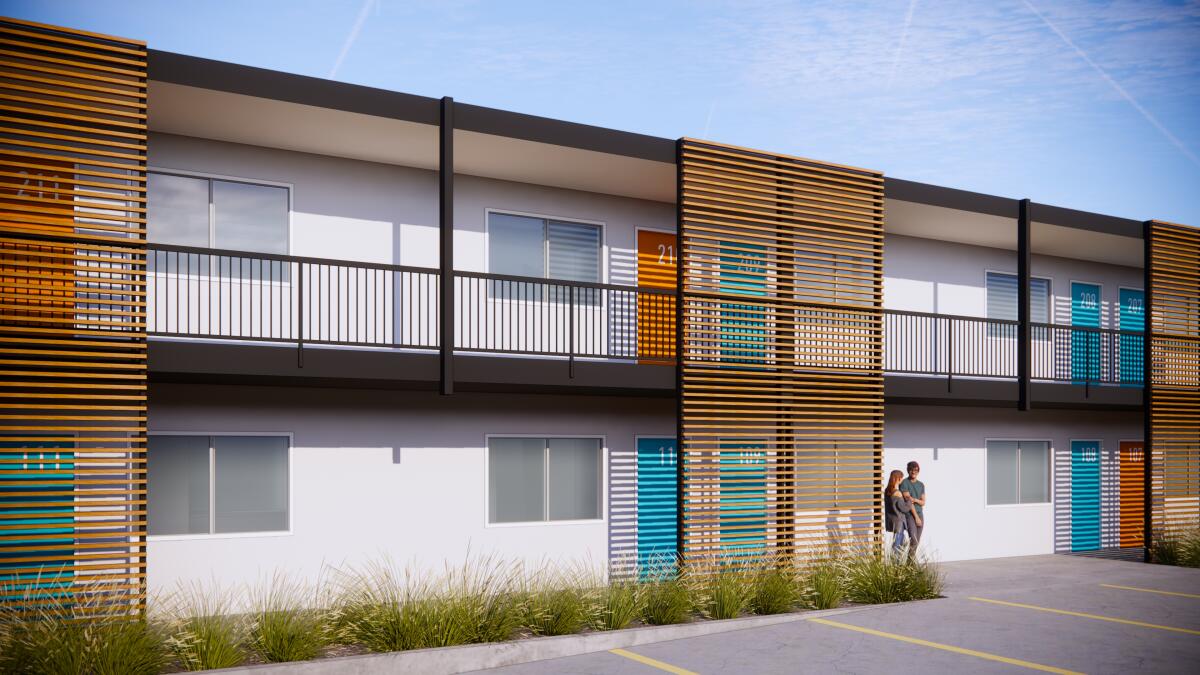
“This project will actually save the city millions … because of reduced hospital stays, police calls and code enforcement violations,” he added. “It’s the right thing to do and also, because of the economic value, a good business move.”
Costa Mesa Mayor John Stephens, along with fellow council members and Orange County Supervisor Katrina Foley, helped bring the city’s first Homekey site to fruition, allocating funds that have leveraged much larger matches from state and federal agencies.
Nearly $10.5 million came from the state’s Project Homekey budget, while the city of Costa Mesa put forth $5.85 million in federal and state allocations and the County of Orange contributed another $5.35 million.
“This reflects a real solution to homelessness for at least 87 people — permanent housing, not a shelter. That, in itself, is an accomplishment,” Stephens said this week. “It also represents the government working with nonprofits to actually fix the problem.”
All the latest on Orange County from Orange County.
Get our free TimesOC newsletter.
You may occasionally receive promotional content from the Daily Pilot.




